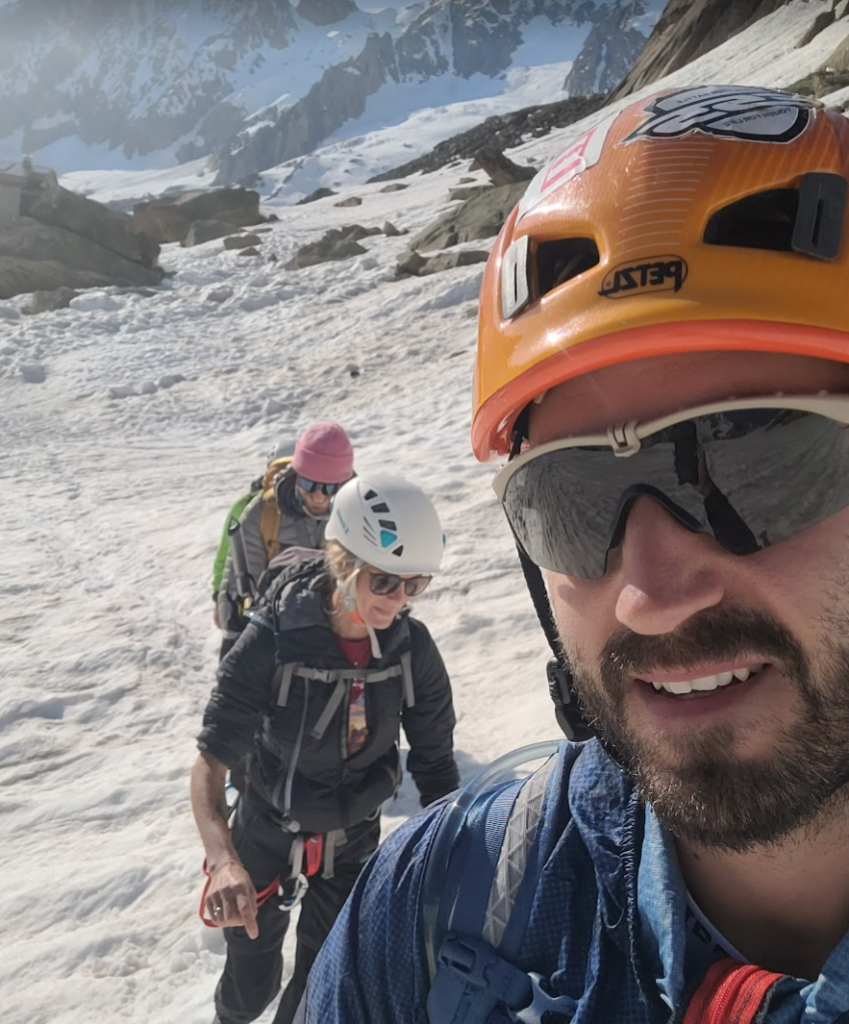Before running my own business, I spent twelve years in the military; at first, I didn’t see the link between business and military leadership. But after a while, I started to understand how much leadership experience I had gained from expedition-style events. Skills that take business owners years to master usually only take a week or two in the wild. Leaders can easily 10x their learning curve if they dare to use expeditions and the outdoors as tools.
By joining expeditions, leaders can learn how to be more proactive, explorative, and flexible. The harsher and more unpredictable environment will also push them to be more collaborative with their team and instill in them the value of making autonomous, fast decisions that can save the team.
In this article, we will discuss how joining expeditions can improve your leadership skills. You’ll read about why it’s crucial never to be overly stubborn about goals, plans, and strategies and how your business can grow by simply altering how you view challenges and hurdles. We will also talk about the value of having backup plans, saying yes to opportunities that come your way, being a nonconformist, and more!
What Can Leaders Learn from Expeditions?

Expeditions are effective, practical, and fun opportunities for establishing some of leadership’s most critical values and principles. The learnings gathered from real-world experiences can easily be translated into a business’ more controlled environment.
Let’s take a look at some of the things leaders can learn from expeditions:
1. Flexibility and Resilience are Keys to Survival
Leadership isn’t all about committing to the set goals and leading your team, by hook or by crook, toward their achievement. Sometimes, leadership is also about having the ability to adjust and respond to changing scenarios, even if it means reinventing the team’s goals.
The famous Shackleton expedition from 1914 – 1916 is a great example of why leaders must also be flexible and adaptable on top of being tenacious and resolute. English explorer Ernest Shackleton and his team of 28 men set out to conquer Antarctica but ended up having to weather the harshest conditions and dangerous misfortunes without ever actually realizing their original goal.
After being pummeled by disaster after disaster, Shackleton had to reshape his objectives. From setting out on a mission to conquer Antarctica, he had to eventually reinvent his expedition into a mission of survival.
Today, he is credited and acclaimed for bringing all 28 of his men safely back to their families. The expedition may have placed a considerable dent in his finances and may be deemed a failure for all intents and purposes, but the leadership skills he displayed made him a role model worthy of emulation in the business world.
Changing your course midstream isn’t a mark of weak leadership. Instead, it exposes a leader who is adaptable, innovative, and equipped to face whatever challenges may come their way. These traits are what can help a business survive, thrive, and succeed in today’s formidable times.
2. Your Team Is Only as Strong as Its Weakest Link

In the wild, you will face overwhelming challenges and seemingly insurmountable obstacles that may sometimes make you question your abilities. Effective expedition leaders can help you overcome your own fears, doubts, and weaknesses by pushing you to your limits to become a better version of yourself.
In the workplace, this can translate into how well you’ll be able to adapt to rising challenges that may make others buckle under extreme pressure. You’ll face these obstacles head-on, armed with the knowledge that conquering your fears is the first step toward success.
Leading a team composed of varying personalities calls for leaders to be conscious of their team members’ strengths and weaknesses. Strengths must be leveraged to the team’s advantage, while weaknesses must be appropriately addressed and compensated so they don’t pull the team down.
3. Safety Nets are Crucial to Survival
“If you aim for the roof and fall, you’ll land on the floor; but if you aim for the sky and fall, you’ll land on the roof.” — Anonymous
This modified version of Bill Shankly’s quote is an apt mantra for business leaders, especially those managing small businesses and startups. There is nothing wrong about having lofty aspirations — in fact, it is quite admirable — but you must have safety nets in place considering the gravity of the risks you’re facing.
This reminds me of Gary Connery, a British professional stuntman, skydiver, and base jumper. He is known as the first skydiver to ever jump out of a flying helicopter in only a wingsuit — no parachute attached!
He plummeted from a height of about 2,400 feet and landed safely on a landing strip made of approximately 18,600 cardboard boxes. Needless to say, the specially-designed cardboard landing strip saved his life, without which he would’ve undoubtedly plummeted to his death.
Expeditions teach you the importance of always having a plan B. Nature is extremely unpredictable — the weather could quickly change, the terrain could shift without warning, or threats like dangerous animals or treacherous hurdles might loom in the distance. You must be equipped and ready to face these situations at all times.
In the business world, an efficient and reliable safety net is also necessary to ensure survival amidst trials. Having a contingency plan ready and in place in case your original plan doesn’t work out will save your business from collapse when tragedy or crisis strikes.
4. Grab Opportunities Before They Disappear
Joining an expedition will teach you the value of seizing opportunities as they come and not constantly waiting for better times to roll by. When you’re out in the wild, you never can truly predict what the weather will be like or what’s waiting for you once you cross a river or climb a mountain.
You take advantage of good circumstances — wash your soiled clothes at the first freshwater lake you see, cook your next meal as soon as the rain stops, or pitch your tent when you spot a safe clearing even if it’s still day. Waiting (and hoping) for better opportunities may backfire on you, and you’ll find yourself wishing you hadn’t been so naive.
In business, saying yes to opportunities can spell the difference between growth and decline. If you don’t grab the opportunity to collaborate with another up-and-coming company now, are you sure that large organization you’ve been eyeing will accept your proposal?
Being patient and knowing how to weigh circumstances are great qualities of a leader, but these must be accompanied by level-headedness and sharp perceptiveness. Remember, it’s great always to be optimistic, but you must also constantly be grounded in reality.
5. Teamwork and Camaraderie are Crucial
Ernest Shackleton knew that his expedition would be faced with many trials, so early on, he made sure to establish an autonomous, self-managing team capable of overcoming hurdles together. He ensured that his team understood the mission and the roles each of them played. Camaraderie and team spirit were crucial factors for Shackleton in ensuring the success of his mission.
In the wild, team members are expected to seek their leader’s guidance, but they must also be capable of making snap decisions on their own. Life and death situations are not uncommon during expeditions, and leaders must not be tasked to carry all the responsibilities solely.
Leaders delegate tasks and empower each team member to make decisions and take on roles based on their unique strengths. This allows the whole team to function synergistically and as efficiently as possible. This is how expedition leaders inspire active followers.
Joining an expedition will teach you the value of teamwork and the essence of doing your part in ensuring the team’s success. In the business world, circumstances constantly change, everyone encounters challenges, and the ability to adapt (or lack thereof) makes or breaks an organization.
6. Choose the Road Less Traveled For Extraordinary Results

This may not always be the best option, but sometimes, taking the road less traveled opens up opportunities for you that may otherwise be inaccessible if you persist in sticking to the norms and upholding tried-and-tested strategies. Innovation and creativity are the keys to uncovering the hidden treasures of unexplored avenues. Additionally, the way you perceive obstacles is a strong determinant of how efficiently you’ll conquer them.
Expeditions encourage you to be bolder and more adventurous. Sure, you’ll have a well-defined, predetermined route for exploration, but enticing trails and secluded footpaths will undoubtedly pique your curiosity. This is how hidden waterfalls and undisturbed fields are discovered.
In business, the road less traveled often holds the best-hidden treasures — better opportunities, lucky breaks, new clients, or exploratory collaborations and business deals. Learning the value of being daring and venturesome from joining expeditions will give you the courage needed to chart your own course in business.
At Sancus Leadership, we teach leaders to make faster and more accurate decisions through experiential leadership in the outdoors. When you want to lead with confidence and never miss an opportunity again, book a free call with us, and discover what your next step is.

